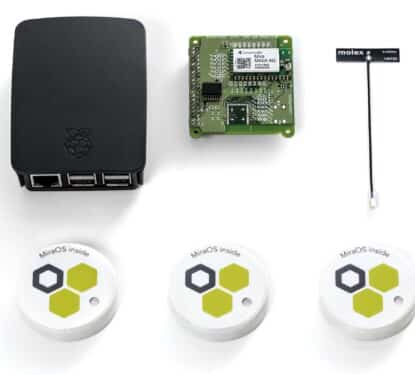“The explosion in connectivity over the past 15 years has fundamentally changed how we work, and equipped organizations with the technology and data to transform their offering at a relatively low cost. Today, companies can scrutinize their operations, services and environments to a degree that was unthinkable a decade ago – this paradigm shift is epitomized by the view that, according to The Economist, data is now a more valuable commodity than crude oil” reads the introduction to a new research report by facilities management (FM) firm Mitie.
The report Digital Transformation: Is Facilities Management Ready? found that built environment leaders are still largely guided by highly visible baseline needs, such as cost and compliance. Respondents cited cost efficiency, energy management and operational risk management as the most important factors currently shaping their facilities management strategy. These results clearly indicate that facilities managers are currently focused on the areas of service that they can measure or that have a tangible and high profile impact on core business operations.
Through a survey of 100 interviews of key decision-makers across a range of facilities management, corporate real estate, and workplace roles; The data revealed that the three FM industry practices that would witness the highest impact from digital transformation over the next five years would be: energy efficiency, security/access control, and mechanical and electrical installation, replacement and maintenance.
The security sector, in particular, appears to be ahead of the curve, with 90% of respondents stating they were already making progress in digitizing their security or access control processes. The research underlined respondents’ belief that digitally-enabled remote monitoring and remote guarding systems provide cost benefits and better agility for emergency situations. The survey, however, also highlights the challenges of effective implementation with 48% of respondents still not achieving the expected benefits of their digital transformation.
“Security access control was identified as a holistic challenge that includes recruitment, screening, and onboarding of people, as well as their permissions to access the physical building and digital assets,” reads the new Mitie report. “Digitally-enabled remote monitoring and remote guarding offer clear cost efficiencies as well as a more agile response to incidents. However, when implementing new digital solutions or technologies, organizations must always consider the potential cyber vulnerabilities that might be created and mitigate these.”
In the research, 31% of respondents cited ‘improving cybersecurity prevention protocols’ as a key concern, while a separate 30% reported ‘concerns over cybersecurity’ as the main impediment to securing more investment for digital transformation projects. In this regard, Andy Rallings, sales director at Mitie Security highlighted the 2017 WannaCry ransomware attack on the UK’s national health service. A single staff member inadvertently opening a single link in a malicious email resulted in a cyber-attack that unlocked every door and disabled access control and CCTV throughout the organization’s head office.
“The manager’s ability to monitor global threats was removed in a second. So, while the initial threat was a cyber one, the attack affected the entire physical infrastructure,” he said. Rallings believes that there is a growing sense of urgency amongst facilities management and corporate real estate managers to mitigate these kinds of digital threats. “The dynamics behind cyber threats change quickly and often. It can be terrifying for businesses when they’ve spent a large portion of their life putting very sturdy protected buildings together, only to find them compromised in an instant.”

Holistic security is crucial on the rocky road towards connected buildings, and the survey demonstrated this. 80% of those surveyed asserted ‘security risk management’ as highly important, while 39% of respondents stated that ‘video monitoring and analytics to ensure safety and security’ is essential. A further 24% also cited ‘demand-led and risk-based security monitoring and remote guarding’ as a key component. While a combined 53% reported ‘leveraging security remote monitoring’ as a top (11%) or high (42%) priority over the next two years.
This increased focus on security and access control is reflected in our on recent research on the Access Control, Intruder Alarm / Perimeter Protection & Video Surveillance Markets. The total value of world production of physical security products at factory gate prices in 2019 was calculated at $34.3 billion. That marks an 8.5% increase on 2018 figures and creates CAGRs of 7.24% and 6.27% over the past five and ten years respectively. Our in-depth report on the industry forecasts the market will reach $56.76 billion in 2024.
The insights from Memoori’s report, Mitie’s survey, and other research demonstrate the vast opportunities and challenging obstacles that the smart building brings to the security discussion. As the number of connected devices proliferates in the built environment the demands placed on security systems are pushed to their limits in order to protect occupants and building functions. Security has become the fundamental element in ensuring safety and the seamless connected experience the smart building promises.
“Inside a building there will be several thousand critical assets from internal access control systems and CCTV, to air conditioning units, server rooms, water pumps, etc. Just one of those critical elements going wrong can significantly affect business continuity,” Jason Towse, managing director of Security & Business Services for Mitie. “In time, frictionless security will become the norm. But we’re some way off organizations being sufficiently comfortable to rely on such technology.”
Follow to get the Latest News & Analysis about Smart Buildings in your Inbox!



